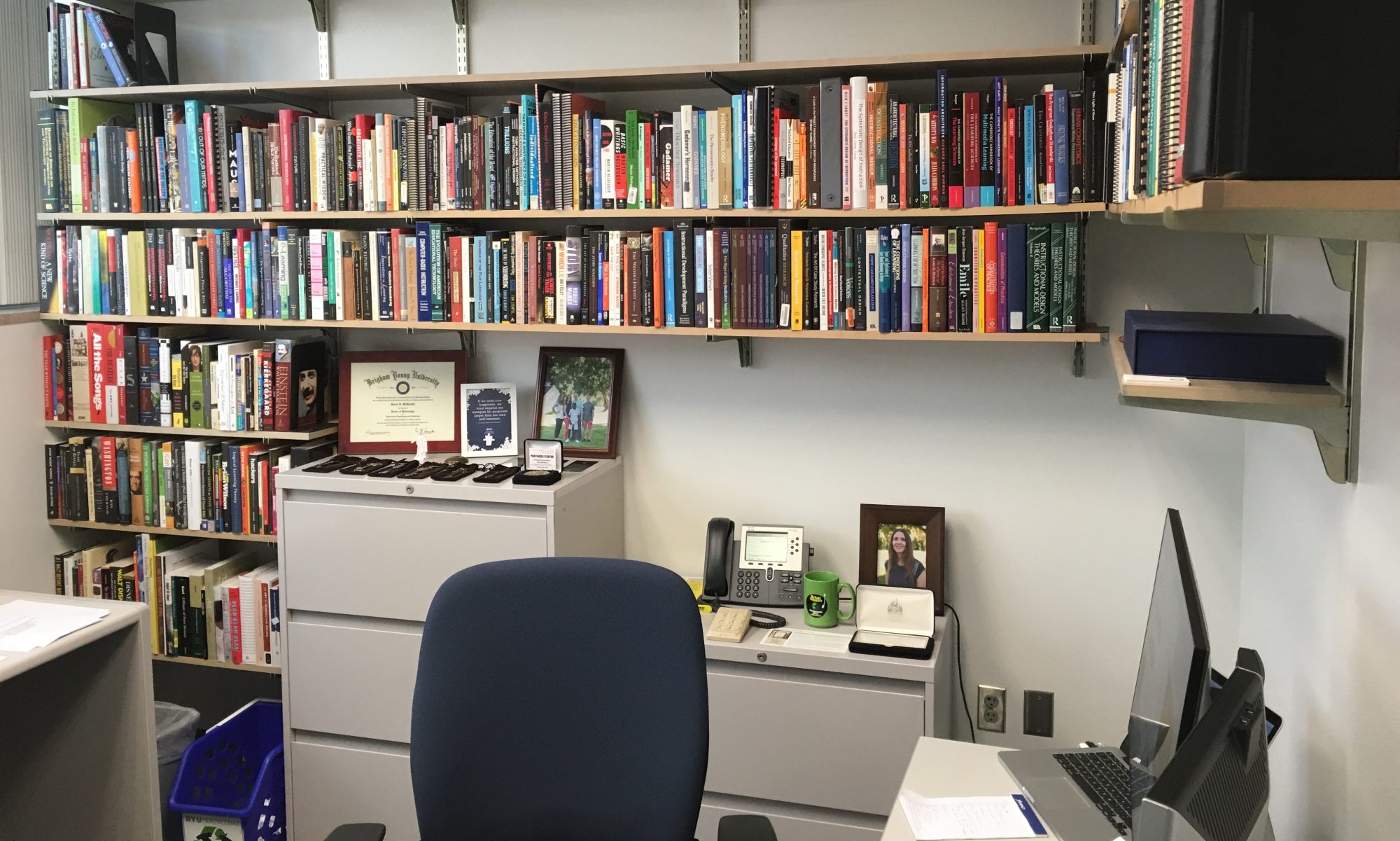One of the first things we started when I came back to BYU was to integrate our curriculum, including finding ways for more advanced students to help those early in the program. This paper is the result of one study we did on using advanced instructional design students to give feedback on the projects completed by beginning students. A simple study, but insightful I think.
Abstract:
The purpose of this study is to investigate how instructional design students perceive the informal, peer critique as an influence in their studio education. Our participants were students enrolled in beginning and advanced studio courses in the department of Instructional Psychology and Technology at Brigham Young University. Groups of 2–3 beginning students were assigned a reviewer from the advanced course, who then led critiques over two face-to-face class sessions with their assigned groups. Students perceived the critique experience to be helpful, although beginning students perceived greater value than did the advanced (possibly due to the time advanced students took to build confidence in the beginners). Students also reported ways in which the critique experience could have been improved, with the most common suggestions being to hold critique sessions more frequently and for longer periods of time. We conclude by discussing the role of informal, peer critiques in the instructional design studio, including how they could complement other forms of feedback that students receive. We also discuss how our findings could contribute towards future research into the value of critique in the instructional design studio environment.
Reference:
McDonald, J. K., Rich, P. J., & Gubler, N. B. (2019). The perceived value of informal, peer critique in the instructional design studio. TechTrends, 63(2), 149–159. https://doi.org/10.1007/s11528-018-0302-9
